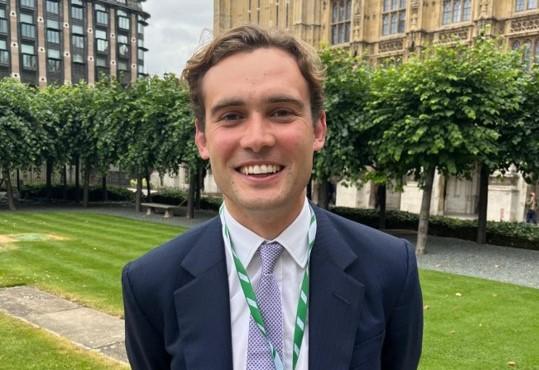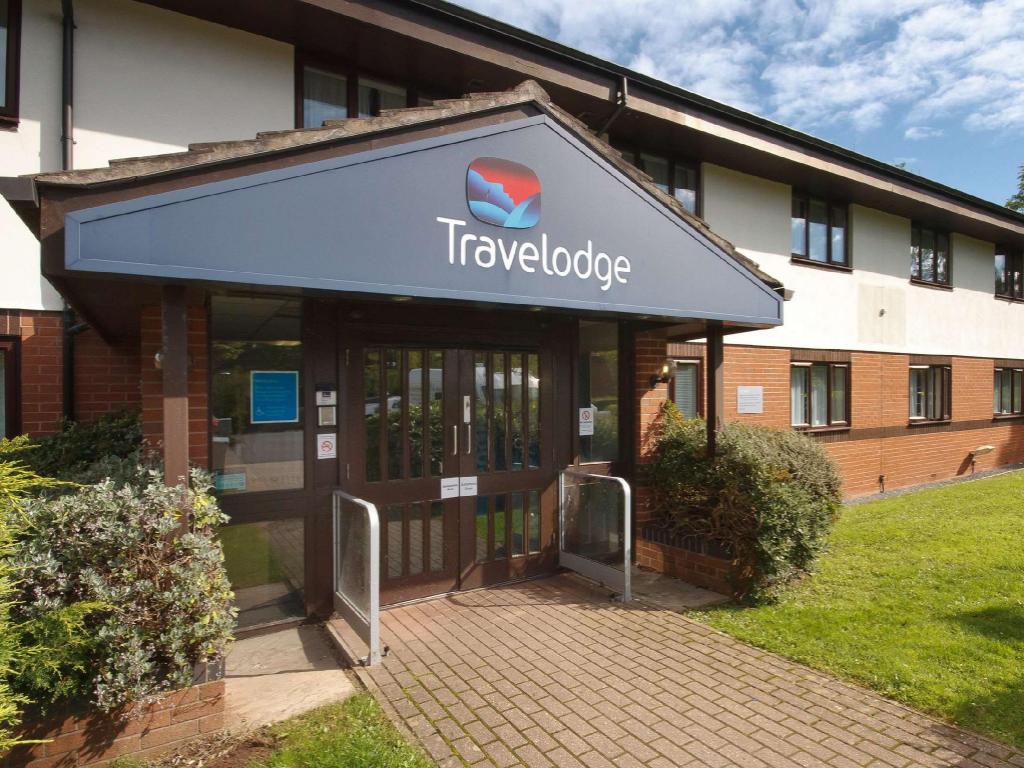News
Pembrokeshire MP Henry Tufnell says he will back Assisted Dying Bill

HENRY TUFNELL MP will vote in favour of Kim Leadbetter MP’s Private Member’s Bill on the emotive subject of legalising assisted dying.
Under the Bill, terminally ill adults with a prognosis of six months or less could seek assistance to end their life, provided two doctors and a High Court judge confirm their eligibility and voluntary decision.
“A PROFOUNDLY COMPLEX ISSUE”
In a statement on his website, the Mid & South Pembrokeshire Labour MP said: “Assisted dying remains a profoundly complex and personal issue, and I’m grateful for the thoughtful input I receive from so many of you. Recently, Kim Leadbeater MP introduced a Private Members’ Bill on this topic, meaning a meaningful debate and potential reform could soon be on the horizon.
“I support the idea of legalising assisted dying for mentally competent, terminally ill adults, provided strong safeguards are in place. This Bill, like all Private Members’ Bills, allows MPs to vote according to their conscience, ensuring a cross-party discussion that respects diverse views.
“For me, any change in law must prioritise protecting vulnerable individuals while addressing the autonomy of those facing terminal illness. Whatever happens, it’s vital to continue prioritising access to high-quality palliative and end-of-life care.
“In Wales, we’re fortunate to have a devolved approach to end-of-life care, with the Welsh Government allocating over £10.5 million annually. Quality care should always remain a priority, supporting dignity and choice at the end of life.
“Thank you again to everyone who has shared their views on assisted dying with me. This issue is both sensitive and significant, and I look forward to ensuring our community’s voice is heard in this conversation.”
We asked Mr Tufnell to expand on his stance, particularly regarding the use of scarce legal, judicial, and health resources.
A spokesperson for Mr Tufnell told The Pembrokeshire Herald: “Henry’s decision to support the Bill at this stage is informed by his belief in treating individuals facing terminal illness with dignity and compassion and upholding their right to autonomy over end-of-life decisions. However, it is important to note that this Bill is currently at the Second Reading stage, which is an opportunity to debate the principles of the proposed legislation rather than its detailed implementation.”
THE LEGISLATIVE PROCESS EXPLAINED
As a Private Members’ Bill, Kim Leadbeater MP introduced this legislation rather than the Government. Such Bills often focus on issues of personal conscience or areas where public debate is necessary.
While many Private Members’ Bills do not progress to becoming law, the Second Reading allows Parliament to assess whether the issue deserves further scrutiny. If the Bill passes this stage, it will proceed to the Committee stage, where MPs will examine its details and consider amendments.
Henry Tufnell’s spokesperson told us: “Henry believes it is vital to give this Bill the opportunity for detailed consideration and public discussion, recognising the ethical complexities it addresses.”
PAYING TO DIE
The issues surrounding the cost of delivering the legislation have been lost in the ethical arguments made by both sides of the debate. However, if the ratio of deaths through assisted dying matches that in the US state of Oregon, used as a touchstone by the Bill’s backers, approximately 3,500 deaths each year will come under the Bill’s provisions.
Those 3,500 deaths would take place following a process involving two doctors who would have to certify the request’s validity and the mental capacity of the person making it. If the doctors okay the request, an application will be made to a judge in the High Court Family Division. Only after a senior and appropriately qualified judge approved the application – which is potentially little more than a hearing followed by a rubber-stamping exercise, would the individual be able to make arrangements for their life to be ended on the NHS.
There are interlocking issues about the resources needed at each step. The first is the availability of the requisite expertise among appropriately qualified doctors. Secondly, the Bill’s proposal to use the High Court Family Division faces even greater issues regarding the availability of enough senior judges to hear and decide on an application.
There is a shortage of judges in the Family Division and a reluctance by sufficiently senior and experienced specialist lawyers to apply for a judicial appointment in it. In addition, in 2022/23, the Family Division of the High Court sat for around 19,000 hours. If the Bill becomes law, the number of sitting hours would increase to around 50,000. There is simply no spare capacity in the system for that level of judicial hours. The idea that the system could somehow “fast-track” applications under the Assisted Dying Bill’s terms runs a coach and horses through the idea that proposed safeguards are adequate or adequately thought through.
Finally, the lethal drugs would be administered using NHS facilities. Those seeking to die using state resources would necessarily displace resources that could be used elsewhere in a health service under extraordinary pressure and already short of resources.
As applications under the Assisted Dying Bill would not be eligible for Legal Aid, the Bill runs the considerable risk of being inaccessible to the terminally ill poor or those unable to afford the level of legal expertise needed to engage with the process.
A QUESTION OF RESOURCES
Mr Tufnell’s spokesperson said: “Henry is aware that implementing any future legislation on assisted dying would require careful planning to ensure sufficient judicial and legal oversight. That would include addressing concerns around clear safeguards and resource allocation.
“The Bill acknowledges the NHS’s central role in supporting individuals at the end of life. If the legislation progresses, Henry will work with colleagues to ensure adequate funding and training for healthcare professionals, alongside enhanced investment in palliative and mental health services.”
LISTENING AND DECIDING
Mr Tufnell’s spokesperson concluded: “Henry’s decision to support the Bill reflects extensive engagement with constituents and medical professionals. He has listened to the perspectives of those who feel strongly both for and against the proposal and has been guided by a commitment to enabling informed choices within a safe and regulated system.
“He recognises the significant public support for giving individuals greater autonomy at the end of life, but also the importance of balancing this with strong protections. The Second Reading stage provides a vital opportunity for Parliament to debate these issues in depth.
“Should the Bill progress further, Henry will continue to engage closely with stakeholders to ensure the proposed legislation is both compassionate and workable.”
international news
Data watchdog probes Musk’s AI firms over deepfake fears

Investigation launched into Grok chatbot after reports of explicit images created using people’s likeness without consent
THE UK’s data protection regulator has opened formal investigations into X and artificial intelligence company xAI amid growing concerns that their chatbot Grok may have been used to create sexualised “deepfake” images without people’s knowledge.
The action has been taken by the Information Commissioner’s Office, which enforces Britain’s data protection laws, following complaints that the AI tool could generate intimate or explicit images using real individuals’ faces or personal data.
Such images, often referred to as deepfakes, are digitally altered or AI-generated pictures that make it appear someone has posed for photographs or videos they never took.
Regulators fear the technology could be exploited for harassment, blackmail or abuse.
The probe follows a separate investigation by Ofcom, which began examining the platform earlier this year over wider online safety concerns.
Mounting pressure
Both investigations come amid mounting scrutiny of services linked to tech billionaire Elon Musk, whose companies have rapidly expanded the use of generative AI tools capable of producing realistic text and images in seconds.
While such tools are marketed for creative and commercial use, campaigners say safeguards have not kept pace with the risks.
Privacy experts warn that if AI systems are trained on, or can access, personal images or data without clear consent, they may breach UK data protection law.
The ICO said it is now examining how Grok was built, what data may have been used in its development, and whether sufficient protections were put in place to stop misuse.
William Malcolm, the watchdog’s executive director for regulatory risk and innovation, said reports surrounding the chatbot were “deeply troubling”.
He said losing control of personal information in this way could cause “immediate and significant harm”, particularly where children or vulnerable people are targeted.
Safeguards questioned
Investigators will look at whether the companies properly assessed risks, limited the use of personal data and introduced effective barriers to prevent the creation of explicit or abusive content.
Under UK law, organisations found to have mishandled personal data can face enforcement action, including large fines or orders to change how their systems operate.
The ICO confirmed it is working closely with Ofcom and overseas regulators as concerns about AI-generated content increasingly cross international borders.
In response to criticism, X has said it has introduced additional moderation tools and technical measures aimed at preventing the creation of harmful or non-consensual images.
However, regulators say they will continue to examine whether those steps go far enough.
The ICO said it would take action if it finds that legal obligations have not been met.
Crime
Man caught in hotel sting after trying to meet girl, 13

Laugharne defendant confronted by paedophile hunters at St Clears Travelodge before suspended jail term at Swansea Crown Court
A LAUGHARNE man who turned up at a Carmarthenshire hotel believing he was meeting a thirteen-year-old girl instead found himself confronted by paedophile hunters and later sentenced at Swansea Crown Court.
William John Williams, fifty-nine, had been communicating online with what he thought was a schoolgirl. The profile was in fact a decoy set up by a vigilante group.
When he arrived at the Travelodge St Clears for a pre-arranged meeting, members of the group were waiting and contacted police, handing over screenshots of his messages.
Prosecutor Matt Murphy told the court that Williams first made contact with the fake Facebook profile in October 2021. The supposed age of thirteen was made clear from the outset.
Despite this, the defendant sent repeated sexual messages, spoke about masturbating, requested photographs and told the “girl” on several occasions that his penis was erect. He also sent topless photographs of himself.
The court heard Williams urged the account holder to delete the messages, acknowledging he knew he should not be sending them because of her age.
Second fake profile
Members of the group later created another false account, posing as a businesswoman from Swansea, and arranged a date with Williams at the hotel in St Clears. They then liaised with another group to attend the rendezvous.
When Williams arrived, he was challenged and police were called.
During interview he answered “no comment”. In a later interview in February 2023, he claimed he did not believe the child was real and said he thought he was exposing scammers.
The court rejected that explanation.
Williams, of Orchard Park, Laugharne, pleaded guilty to attempting to engage in sexual communication with a child. He had no previous convictions.
Defence barrister Ian Ibrahim said more than four years had passed since the offending and highlighted delays of more than two years between arrest and court proceedings. He said the defendant, formerly employed in hospitality and construction, was now in poor health and had lost his good character.
Internet ‘unsafe for children’
Sentencing, Judge Catherine Richards told Williams it was the actions of “grown men like you” that made the internet feel unsafe for children and caused parents and carers real concern.
After credit for his guilty plea, Williams was sentenced to twelve months’ imprisonment, suspended for twelve months, and ordered to complete a rehabilitation programme.
He was also placed on the sex offenders register for ten years and made subject to a Sexual Harm Prevention Order for the same period.
News
Princess of Wales visits historic Pembrokeshire woollen mill

Catherine the Princess of Wales visited Melin Tregwynt, a historic family-owned woollen mill, today, highlighting the enduring traditions and skills of the British textile industry.
Nestled in a secluded, wooded valley near Castlemorris, close to Haverfordwest, Melin Tregwynt has been in continuous operation since at least 1841. The mill, which employs over 40 local people, produces blankets, throws, scarves, cushions and clothing, blending traditional patterns with vibrant colours and contemporary design. Its products are admired globally, from Tenby to Tokyo.
During her visit, the Princess met Melin Tregwynt’s director, Louise Clarke, to learn how the mill preserves traditional craft skills. The company draws on generations of expertise among its staff to mentor young apprentices, ensuring the survival of this historic craft.
Her Royal Highness also spent time with weavers at the loom, observing the intricate process of Welsh double cloth weaving for which Melin Tregwynt is renowned. This traditional technique produces thick, reversible blankets with inverted patterns on each side. The Princess followed the journey of a blanket from initial design to the finished product, seeing the weaving loom in action and meeting the teams responsible for cutting, sewing and finishing the textiles.
The Princess, a long-standing advocate of the British textile industry, has personal connections to the trade: her paternal ancestors were owners of the Leeds-based woollen manufacturer and merchant William Lupton & Co. This visit continues a series of engagements celebrating British textiles, including a tartan-weaving studio in Stirling, Scotland, in January, and visits in 2025 to manufacturers in Carmarthenshire, Suffolk, Kent, and County Tyrone.
After her visit to Melin Tregwynt, the princess went on to visit Huit Denim in Cardigan.

MORE TO FOLLOW INCLUDING OFFICIAL PICTURES
-

 Health5 days ago
Health5 days agoConsultation reveals lack of public trust in health board
-

 News6 days ago
News6 days agoCaldey still unsafe, survivors warn — despite Abbey’s reform claims
-

 Community6 days ago
Community6 days agoPembrokeshire students speak at national Holocaust Memorial Day event
-

 News1 hour ago
News1 hour agoPrincess of Wales visits historic Pembrokeshire woollen mill
-

 News6 days ago
News6 days agoKurtz raises Gumfreston flooding in the Senedd as petition deadline nears
-

 Crime7 days ago
Crime7 days agoMan denies murdering brother as jury hears of ‘ferocious attack’ at Morriston flat
-

 Entertainment7 days ago
Entertainment7 days agoRapunzel brings festive magic to Torch Theatre
-

 Crime4 days ago
Crime4 days agoPembroke man accused of child sex offences sent to Swansea Crown Court

































